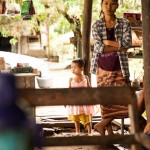The UN Guiding Principles are explicit that financial institutions share the corporate duty to respect human rights. However, human rights due diligence of investors is, of necessity, different than the human rights due diligence of the entities and operations they finance. Financial institutions have their greatest leverage before they have issued financing, meaning that not only must assessment be robust up front (as monitoring is unlikely to generate on-the-ground change once funds are disbursed), and it must also be swift enough not to disrupt development timelines. A more targeted approach to human rights risks is, thus, important, to ensure that assessment is swift and directed at the most significant risks.
The two case studies here look at infrastructure investments made by international financial institutions (IFIs), one in the Middle East, and one in post-conflict Myanmar. Contextual conditions are particularly salient in financial-sector human rights risk assessment. While conflict risk plays a major part in this evaluation, political dynamics are also a significant factor, where infrastructure risks benefitting empowered populations to the detriment of the marginalized.








Thank you very much